Sweet potatoes fries seemed to be all the rage a few years ago but I was never really a fan because they don’t compare to daigaku imo.
Daigaku imo are candied satsumaimo (Japanese sweet potato) which are deep fried and coated in a sugar coating. Daigaku imo come in different shapes and sizes but my favorite way to cut the potatoes are large oblique cuts.
I like them like this because, not only are they cute, but the fatter they are, the more hoka hoka the potato is on the inside. You get the crunch from being fried and the candy coating on the outside, but you also get the richness of the sweet potato on the inside which is similar to the consistency of roasted chestnuts.
When you cut them too thin, they end up crunchier but you lose some of the soft center of the sweet potato. I often seen daigaku imo at matsuri (Japanese festivals) cut into long sticks and served in cups. They are good like this too but with the chunky oblique cuts, you get a perfect balance of crunchy and soft creamy satsumaimo.
If you were thinking of trying the orange sweet potatoes that are readily available in the US, you might as well make something else. I tried substituting satsumaimo with regular sweet potatoes and it ended up soggy because there was too much moisture in that variety. Satsumaimo are a must for this recipe.
Please note: The candy coating is the most difficult step in this recipe. If you don’t get it right the first time don’t give up! Daigaku imo are sooooo worth it! Gambatte!
Ingredients
300 grams of satsumaimo (approx. 2 small satsumaimo)
2 tbsp + 1 tsp. zaratou*
1 tbsp + 1/2 tsp. water
1/4 tsp. soy sauce
1/4 tsp. rice vinegar
2 tsp. black sesame seeds
vegetable oil for frying
*If you can’t get zaratou, try to find the coarsest sugar you can find. It helps to create that candy coating.
Directions
1) Cut the satsumaimo into chunky oblique cuts.
2) Put the satsumaimo into cold vegetable oil. (Don’t heat up the oil first! Starting the satsumaimo in cold oil helps to create a crispy outside. This is a trade secret from my grandmother…guess it’s not so secret anymore.)
3) Fry the satsumaimo until they are golden brown. They should take about 15 minutes on medium heat.
4) While the satsumaimo are frying, prep the candy coating ingredients. (Measuring them ahead of time will help you get all the ingredients into the sauce pan at the same time.)
5) Add all the candy coating ingredients into a pan and heat it on low-medium. (Tip: This is probably the trickiest step because if the candy coating thicken up too much then it will crystalize and create a chalky coating but if it’s too runny, it will end up like syrup. Slowly simmer it and stir it constantly with a wooden spoon until you can run the spoon through and it creates a line. See photo below.)
6) When the candy coating is ready, with the stove still on, add the sesame seeds and fried satsumaimo and mix quickly until the potatoes are completely coated.
7) Serve the potatoes immediately and enjoy while hot!
Cut the satsumaimo into chunky oblique cuts. 300 grams is approximately 2 small satsumaimo.
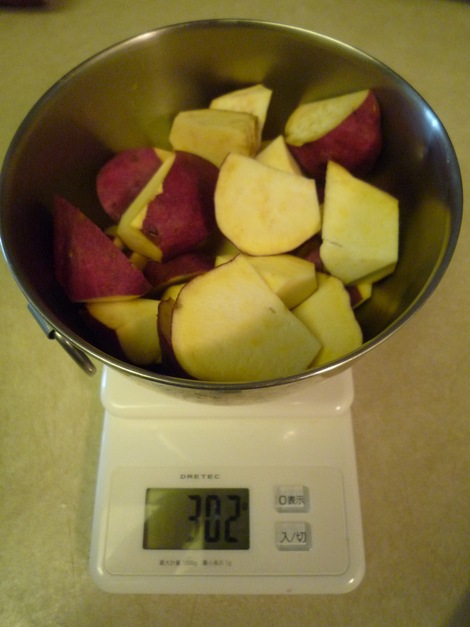
Start the satsumaimo in cold oil. This will ensure a crunchy outside and help prevent soggy and oily satsumaimo.
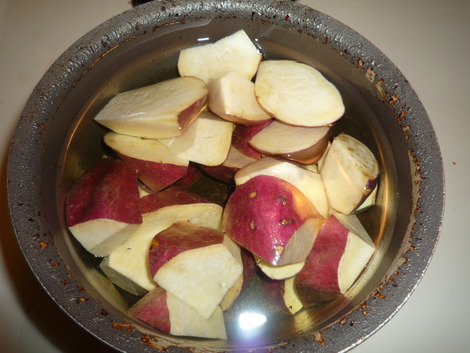
Fry the satsuma imo until golden brown approx. 15 minutes.
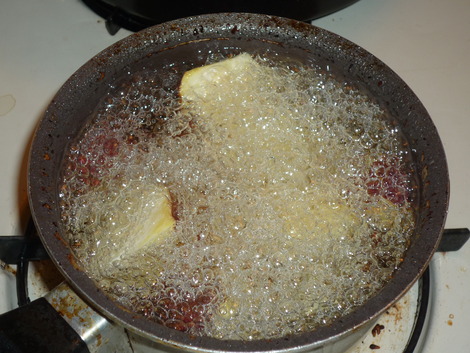
Prepare all of the candy coating ingredients ahead of time so you can dump all pre measured ingredients in the sauce pan. (Clockwise starting at 12: Black sesame seeds, water, vinegar, zaratou, soy sauce.)
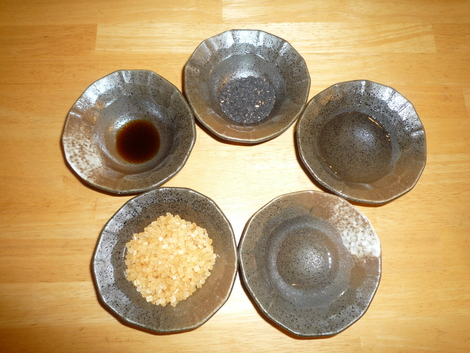
Once the satsumaimo are done, drain them on a paper towel.
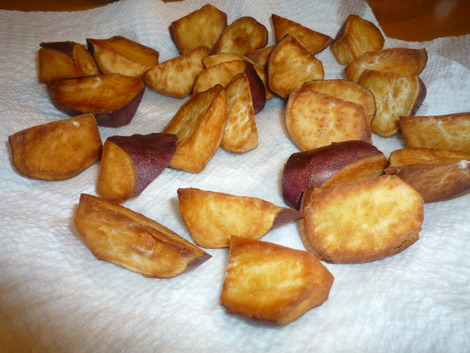
This is the tricky part. Continue to babysit and stir the candy coating until you can run a wooden spoon through it and it leaves a line.
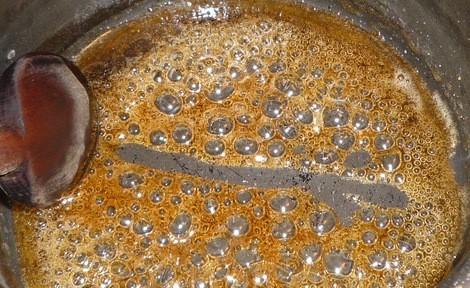
Once the sugar coating is ready, add the satsumaimo and sesame seeds.
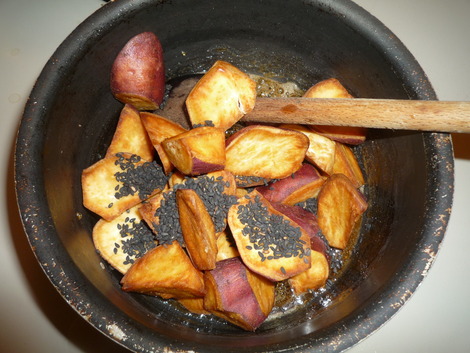
Keep the heat on and mix well until all the daigakuimo are coated. (Do this quickly otherwise the sugar will start to dry out and become chalky.)
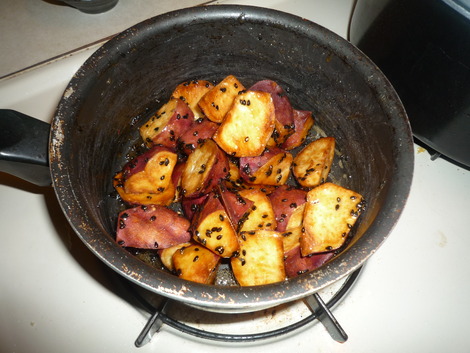
YUM! Ready to dig in. This is where you appreciate the vinegar because it helps the daigaku imo from turning into one big glob.
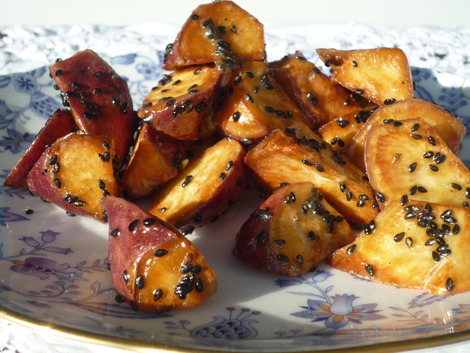
Check out the hoka hoka (pipping hot) satsumaimo inside. The challenge here was to stop and take a picture while pigging out.
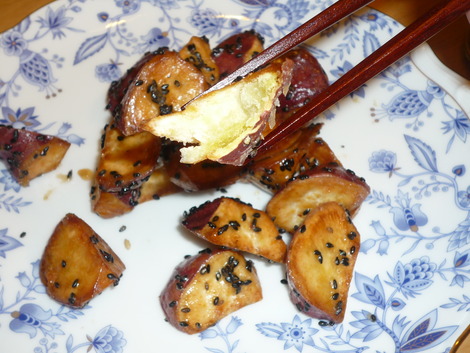

Naomi Kuwabara was born and raised in California but spent many summers in Japan growing up. She has spent time living in Hokkaido and Osaka, both meccas for Japanese cuisine. Her passion is cooking and sharing her experiences cooking Japanese food with others. Her blog Umamitopia is about her experiences cooking Japanese food. Her greatest inspirations are from her mother and grandmother. Her cooking adventures can be found at http://umamitopia.com.








